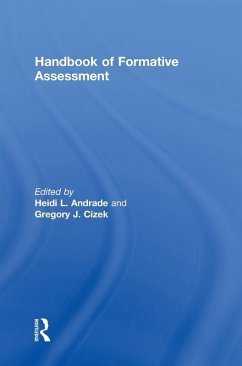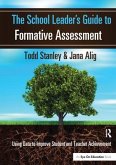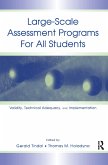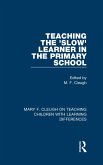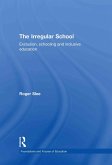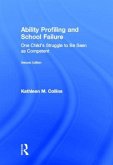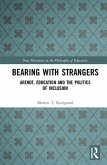Handbook of Formative Assessment
Herausgeber: Andrade, Heidi L; Cizek, Gregory J
Handbook of Formative Assessment
Herausgeber: Andrade, Heidi L; Cizek, Gregory J
- Gebundenes Buch
- Merkliste
- Auf die Merkliste
- Bewerten Bewerten
- Teilen
- Produkt teilen
- Produkterinnerung
- Produkterinnerung
The Handbook of Formative Assessment comprehensively profiles this burgeoning field of study. Written by leading international scholars and practitioners, each chapter discusses key issues in formative assessment policy and practice.
Andere Kunden interessierten sich auch für
![The School Leader's Guide to Formative Assessment The School Leader's Guide to Formative Assessment]() Todd StanleyThe School Leader's Guide to Formative Assessment145,99 €
Todd StanleyThe School Leader's Guide to Formative Assessment145,99 €![Designing Inclusive Assessment in Schools Designing Inclusive Assessment in Schools]() Designing Inclusive Assessment in Schools188,99 €
Designing Inclusive Assessment in Schools188,99 €![Large-Scale Assessment Programs for All Students Large-Scale Assessment Programs for All Students]() Large-Scale Assessment Programs for All Students180,99 €
Large-Scale Assessment Programs for All Students180,99 €![Teaching the 'Slow' Learner in the Primary School Teaching the 'Slow' Learner in the Primary School]() Teaching the 'Slow' Learner in the Primary School145,99 €
Teaching the 'Slow' Learner in the Primary School145,99 €![The Irregular School The Irregular School]() Roger SleeThe Irregular School187,99 €
Roger SleeThe Irregular School187,99 €![Ability Profiling and School Failure Ability Profiling and School Failure]() Kathleen M CollinsAbility Profiling and School Failure187,99 €
Kathleen M CollinsAbility Profiling and School Failure187,99 €![Bearing with Strangers Bearing with Strangers]() Morten T KorsgaardBearing with Strangers189,99 €
Morten T KorsgaardBearing with Strangers189,99 €-
-
-
The Handbook of Formative Assessment comprehensively profiles this burgeoning field of study. Written by leading international scholars and practitioners, each chapter discusses key issues in formative assessment policy and practice.
Hinweis: Dieser Artikel kann nur an eine deutsche Lieferadresse ausgeliefert werden.
Hinweis: Dieser Artikel kann nur an eine deutsche Lieferadresse ausgeliefert werden.
Produktdetails
- Produktdetails
- Verlag: Taylor & Francis
- Seitenzahl: 380
- Erscheinungstermin: 1. Oktober 2009
- Englisch
- Abmessung: 246mm x 175mm x 25mm
- Gewicht: 839g
- ISBN-13: 9780415993197
- ISBN-10: 0415993199
- Artikelnr.: 28023615
- Herstellerkennzeichnung
- Libri GmbH
- Europaallee 1
- 36244 Bad Hersfeld
- gpsr@libri.de
- Verlag: Taylor & Francis
- Seitenzahl: 380
- Erscheinungstermin: 1. Oktober 2009
- Englisch
- Abmessung: 246mm x 175mm x 25mm
- Gewicht: 839g
- ISBN-13: 9780415993197
- ISBN-10: 0415993199
- Artikelnr.: 28023615
- Herstellerkennzeichnung
- Libri GmbH
- Europaallee 1
- 36244 Bad Hersfeld
- gpsr@libri.de
Heidi Andrade (PhD Harvard) is Assistant Professor of Educational Psychology and Methodology at the University of Albany, State University of New York where she teaches courses on classroom assessment, educational psychology, and self-regulated learning. Gregory Cizek (PhD Michigan State University) is Professor of educational measurement and evaluation at the University of North Carolina where he teaches courses in applied testing, statistics, and research methods.
Preface
Section I. Foundations of Formative Assessment
1. An Introduction to Formative Assessment: History, Characteristics, and
Challenges, Gregory J. Cizek
2. An Integrative Summary of the Research Literature and Implications for a
New Theory of Formative Assessment, Dylan Wiliam
3. The Practical Implications of Educational Aims and Contexts for
Formative Assessment, James McMillan
Section II. Formative Assessment Methods and Practice
4. Peers as a Source of Formative Assessment, Keith J. Topping
5. Formative Assessment Applications of Culminating Demonstrations of
Mastery, Jill Davidson and Jay Feldman
6. Students as the Definitive Source of Formative Assessment: Academic
Self-Assessment and the Self-Regulation of Learning, Heidi L. Andrade
7. Formative Assessment: The Contribution of Benjamin S. Bloom, Thomas R.
Guskey
8. Technology-Aided Formative Assessment of Learning: New Developments and
Applications, Michael K. Russell
9. Formative Assessment, Motivation, and Science Learning, Maria Araceli
Ruiz-Primo, Erin Marie Furtak, Carlos Ayala, Yue Yin, and Richard J.
Shavelson
10. Research and Strategies for Adapting Formative Assessment for Students
with Special Needs, Stephen N. Elliott, Ryan J. Kettler, Peter A. Beddow,
and Alexander Kurz
11. Research and Recommendations for Formative Assessment with English
Language Learners, Jamal Abedi
12. Moment-by-moment Formative Assessment of Second Language Development:
ESOL Professionals at Work, Carla Meskill
13. Formative Assessment Practices that Maximize Learning for Students
At-Risk, Gerunda B. Hughes
14. Essential Formative Assessment Competencies for Teachers and School
Leaders, Rick Stiggins
15. Research on Characteristics of Effective Professional Development
Programs for Enhancing Educators' Skills in Formative Assessment, M.
Christina Schneider and Bruce Randel
Section III: Challenges and Future Directions for Formative Assessment
16. Mixing It Up: Combining Sources of Classroom Achievement Information
for Formative and Summative Purposes, Susan M. Brookhart
17. Psychometric Challenges and Opportunities in Implementing Formative
Assessment, Walter D. Way, Robert P. Dolan, and Paul Nichols
18. Strategies and Policies for Incorporating Formative Assessment into
Comprehensive and Balanced State Assessment Systems, Doug A. Rindone and
Duncan MacQuarrie
19. Keeping the Focus, Expanding the Vision, Maintaining the Balance:
Preserving and Enhancing Formative Assessment in Nebraska, Chris W.
Gallagher
20. Summing Up and Moving Forward: Key Challenges and Future Directions for
Research and Development in Formative Assessment, Heidi L. Andrade
About the Authors
Author Index
Subject Index
Section I. Foundations of Formative Assessment
1. An Introduction to Formative Assessment: History, Characteristics, and
Challenges, Gregory J. Cizek
2. An Integrative Summary of the Research Literature and Implications for a
New Theory of Formative Assessment, Dylan Wiliam
3. The Practical Implications of Educational Aims and Contexts for
Formative Assessment, James McMillan
Section II. Formative Assessment Methods and Practice
4. Peers as a Source of Formative Assessment, Keith J. Topping
5. Formative Assessment Applications of Culminating Demonstrations of
Mastery, Jill Davidson and Jay Feldman
6. Students as the Definitive Source of Formative Assessment: Academic
Self-Assessment and the Self-Regulation of Learning, Heidi L. Andrade
7. Formative Assessment: The Contribution of Benjamin S. Bloom, Thomas R.
Guskey
8. Technology-Aided Formative Assessment of Learning: New Developments and
Applications, Michael K. Russell
9. Formative Assessment, Motivation, and Science Learning, Maria Araceli
Ruiz-Primo, Erin Marie Furtak, Carlos Ayala, Yue Yin, and Richard J.
Shavelson
10. Research and Strategies for Adapting Formative Assessment for Students
with Special Needs, Stephen N. Elliott, Ryan J. Kettler, Peter A. Beddow,
and Alexander Kurz
11. Research and Recommendations for Formative Assessment with English
Language Learners, Jamal Abedi
12. Moment-by-moment Formative Assessment of Second Language Development:
ESOL Professionals at Work, Carla Meskill
13. Formative Assessment Practices that Maximize Learning for Students
At-Risk, Gerunda B. Hughes
14. Essential Formative Assessment Competencies for Teachers and School
Leaders, Rick Stiggins
15. Research on Characteristics of Effective Professional Development
Programs for Enhancing Educators' Skills in Formative Assessment, M.
Christina Schneider and Bruce Randel
Section III: Challenges and Future Directions for Formative Assessment
16. Mixing It Up: Combining Sources of Classroom Achievement Information
for Formative and Summative Purposes, Susan M. Brookhart
17. Psychometric Challenges and Opportunities in Implementing Formative
Assessment, Walter D. Way, Robert P. Dolan, and Paul Nichols
18. Strategies and Policies for Incorporating Formative Assessment into
Comprehensive and Balanced State Assessment Systems, Doug A. Rindone and
Duncan MacQuarrie
19. Keeping the Focus, Expanding the Vision, Maintaining the Balance:
Preserving and Enhancing Formative Assessment in Nebraska, Chris W.
Gallagher
20. Summing Up and Moving Forward: Key Challenges and Future Directions for
Research and Development in Formative Assessment, Heidi L. Andrade
About the Authors
Author Index
Subject Index
Preface
Section I. Foundations of Formative Assessment
1. An Introduction to Formative Assessment: History, Characteristics, and
Challenges, Gregory J. Cizek
2. An Integrative Summary of the Research Literature and Implications for a
New Theory of Formative Assessment, Dylan Wiliam
3. The Practical Implications of Educational Aims and Contexts for
Formative Assessment, James McMillan
Section II. Formative Assessment Methods and Practice
4. Peers as a Source of Formative Assessment, Keith J. Topping
5. Formative Assessment Applications of Culminating Demonstrations of
Mastery, Jill Davidson and Jay Feldman
6. Students as the Definitive Source of Formative Assessment: Academic
Self-Assessment and the Self-Regulation of Learning, Heidi L. Andrade
7. Formative Assessment: The Contribution of Benjamin S. Bloom, Thomas R.
Guskey
8. Technology-Aided Formative Assessment of Learning: New Developments and
Applications, Michael K. Russell
9. Formative Assessment, Motivation, and Science Learning, Maria Araceli
Ruiz-Primo, Erin Marie Furtak, Carlos Ayala, Yue Yin, and Richard J.
Shavelson
10. Research and Strategies for Adapting Formative Assessment for Students
with Special Needs, Stephen N. Elliott, Ryan J. Kettler, Peter A. Beddow,
and Alexander Kurz
11. Research and Recommendations for Formative Assessment with English
Language Learners, Jamal Abedi
12. Moment-by-moment Formative Assessment of Second Language Development:
ESOL Professionals at Work, Carla Meskill
13. Formative Assessment Practices that Maximize Learning for Students
At-Risk, Gerunda B. Hughes
14. Essential Formative Assessment Competencies for Teachers and School
Leaders, Rick Stiggins
15. Research on Characteristics of Effective Professional Development
Programs for Enhancing Educators' Skills in Formative Assessment, M.
Christina Schneider and Bruce Randel
Section III: Challenges and Future Directions for Formative Assessment
16. Mixing It Up: Combining Sources of Classroom Achievement Information
for Formative and Summative Purposes, Susan M. Brookhart
17. Psychometric Challenges and Opportunities in Implementing Formative
Assessment, Walter D. Way, Robert P. Dolan, and Paul Nichols
18. Strategies and Policies for Incorporating Formative Assessment into
Comprehensive and Balanced State Assessment Systems, Doug A. Rindone and
Duncan MacQuarrie
19. Keeping the Focus, Expanding the Vision, Maintaining the Balance:
Preserving and Enhancing Formative Assessment in Nebraska, Chris W.
Gallagher
20. Summing Up and Moving Forward: Key Challenges and Future Directions for
Research and Development in Formative Assessment, Heidi L. Andrade
About the Authors
Author Index
Subject Index
Section I. Foundations of Formative Assessment
1. An Introduction to Formative Assessment: History, Characteristics, and
Challenges, Gregory J. Cizek
2. An Integrative Summary of the Research Literature and Implications for a
New Theory of Formative Assessment, Dylan Wiliam
3. The Practical Implications of Educational Aims and Contexts for
Formative Assessment, James McMillan
Section II. Formative Assessment Methods and Practice
4. Peers as a Source of Formative Assessment, Keith J. Topping
5. Formative Assessment Applications of Culminating Demonstrations of
Mastery, Jill Davidson and Jay Feldman
6. Students as the Definitive Source of Formative Assessment: Academic
Self-Assessment and the Self-Regulation of Learning, Heidi L. Andrade
7. Formative Assessment: The Contribution of Benjamin S. Bloom, Thomas R.
Guskey
8. Technology-Aided Formative Assessment of Learning: New Developments and
Applications, Michael K. Russell
9. Formative Assessment, Motivation, and Science Learning, Maria Araceli
Ruiz-Primo, Erin Marie Furtak, Carlos Ayala, Yue Yin, and Richard J.
Shavelson
10. Research and Strategies for Adapting Formative Assessment for Students
with Special Needs, Stephen N. Elliott, Ryan J. Kettler, Peter A. Beddow,
and Alexander Kurz
11. Research and Recommendations for Formative Assessment with English
Language Learners, Jamal Abedi
12. Moment-by-moment Formative Assessment of Second Language Development:
ESOL Professionals at Work, Carla Meskill
13. Formative Assessment Practices that Maximize Learning for Students
At-Risk, Gerunda B. Hughes
14. Essential Formative Assessment Competencies for Teachers and School
Leaders, Rick Stiggins
15. Research on Characteristics of Effective Professional Development
Programs for Enhancing Educators' Skills in Formative Assessment, M.
Christina Schneider and Bruce Randel
Section III: Challenges and Future Directions for Formative Assessment
16. Mixing It Up: Combining Sources of Classroom Achievement Information
for Formative and Summative Purposes, Susan M. Brookhart
17. Psychometric Challenges and Opportunities in Implementing Formative
Assessment, Walter D. Way, Robert P. Dolan, and Paul Nichols
18. Strategies and Policies for Incorporating Formative Assessment into
Comprehensive and Balanced State Assessment Systems, Doug A. Rindone and
Duncan MacQuarrie
19. Keeping the Focus, Expanding the Vision, Maintaining the Balance:
Preserving and Enhancing Formative Assessment in Nebraska, Chris W.
Gallagher
20. Summing Up and Moving Forward: Key Challenges and Future Directions for
Research and Development in Formative Assessment, Heidi L. Andrade
About the Authors
Author Index
Subject Index

